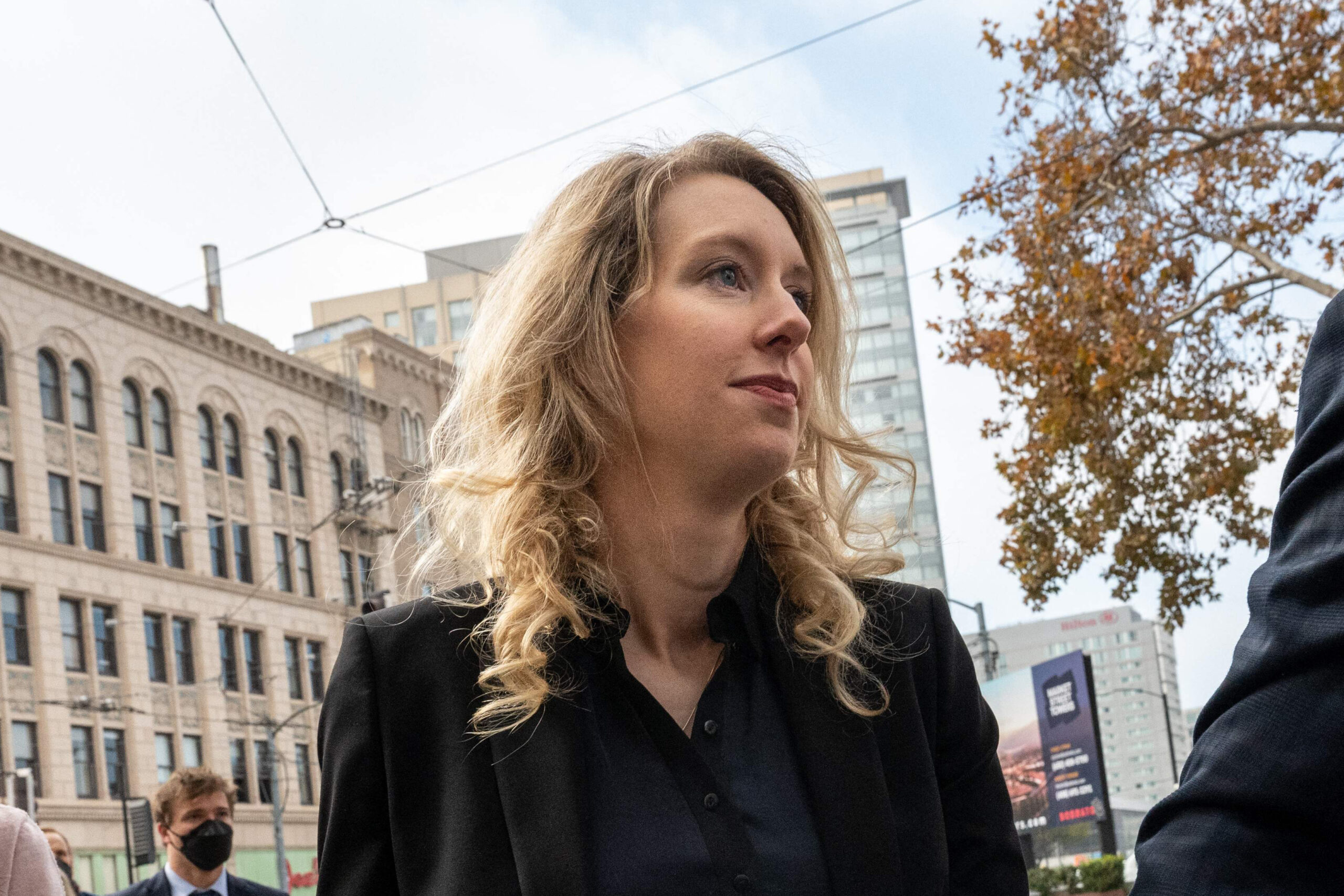Theranos founder Elizabeth Holmes was sentenced to 11 years and three months behind bars for ripping off investors by lying about having a technology to revolutionize blood testing.
The penalty handed down in a San Jose federal court Friday culminates Holmes’ descent from Silicon Valley star to one of the industry’s most notorious fraudsters.
Holmes, 38, was convicted earlier this year on several counts of fraud for bilking backers who poured hundreds of millions of dollars into her startup. In court filings ahead of the sentencing, federal prosecutors called her crimes “among the most substantial white-collar offenses Silicon Valley […] has seen.”
Victims had a chance to speak Friday, as did Holmes, who tearfully apologized for the people she hurt.
Elizabeth Holmes (through tears): "I am devastated by my failings. I have felt deep pain for what people went through, because I failed them."
— scott budman (@scottbudman) November 18, 2022
"To investors, patients, I am sorry."
The downfall of Theranos began in 2015 with with The Wall Street Journal exposing how the blood-testing technology touted by Holmes didn’t work. That bombshell was followed by a series of revelations about how the company tried to cover its tracks and how that deception impacted patients’ lives.
Theranos, which peaked at a $9 billion valuation, ultimately collapsed in 2018, the year Holmes was indicted along with fellow executive and then-romantic partner Sunny Balwani.
Holmes was convicted in January this year and Balwani in July.
For Holmes, prosecutors asked for a 15-year prison term followed by three years of supervised release and upward of $800 million in restitution. The disgraced founder—who is pregnant with her second child—sought no more than 18 months in lockup, community service and house arrest.
At Friday’s marathon sentencing hearing, the two sides sparred over whether the court should weigh how the fraud impacted people who got faulty blood tests since Holmes was acquitted on charges of defrauding patients. U.S. District Judge Edward Davila said it wouldn’t factor into the sentencing because she was never convicted of duping patients.
Also debated was the scope of loss for investors.
Government prosecutor John Bostic argued that everyone who put money into the startup fell victim to the criminal scheme and that restitution should cover the $804 million Theranos raised in 2013 and 2014.
Defense lawyer Kevin Downey countered that investors shouldn’t be treated as a monolith because some had access to more information than others. In his calculation, the financial loss should come to about $48 million.
Judge Davila hewed closer to the defense recommendations, saying he agrees that not all investors should be considered victims and that he found only enough evidence to show that at least 10 backers were fleeced out of a combined $120 million. But he said he will decide restitution in a separate hearing.
